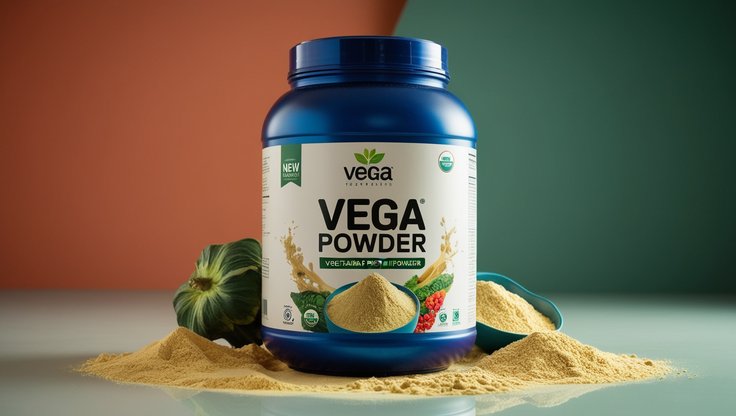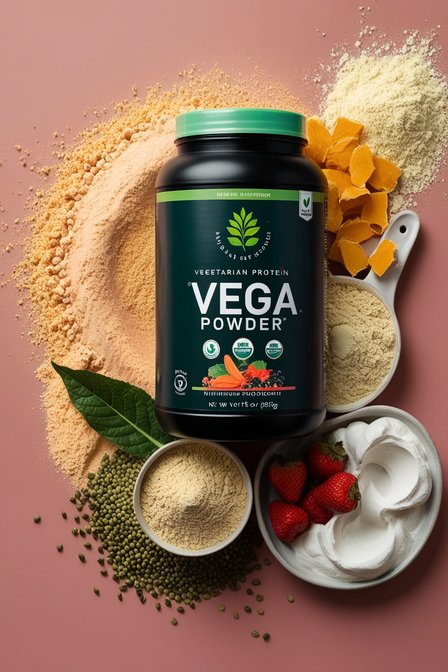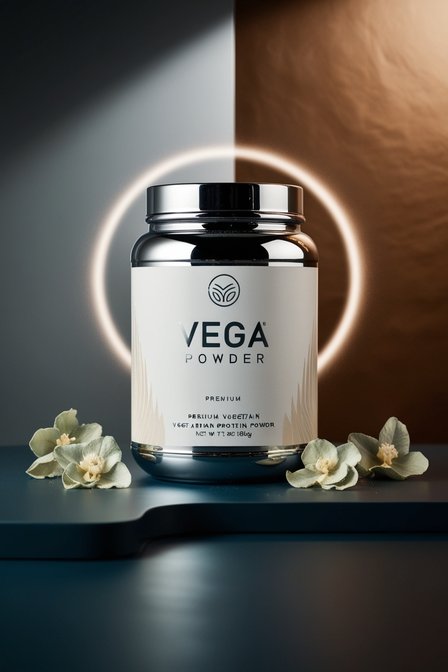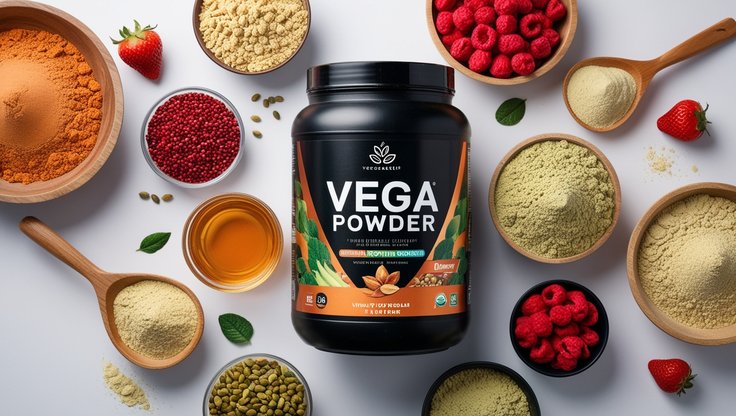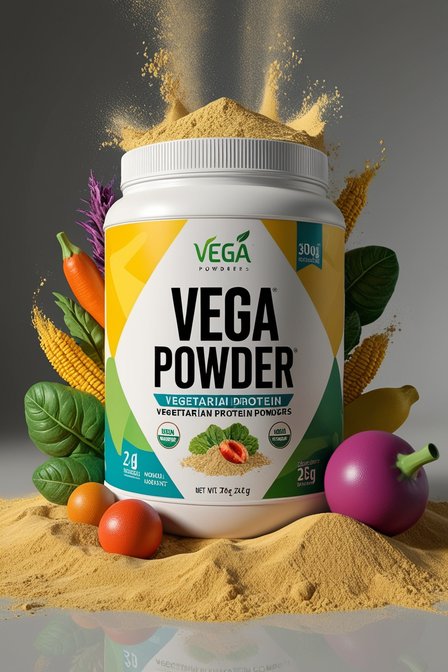Understanding Complete Vegan Protein
Introduction to Vegan Protein
In recent years, veganism has become more than just a trend; it’s a lifestyle choice embraced by millions around the globe. This shift is driven by various factors, including health benefits, environmental concerns, and ethical reasons. However, one of the most common concerns for those considering a vegan diet is the ability to consume enough protein. Protein is essential for building and repairing tissues, producing enzymes and hormones, and maintaining overall health.
What is Complete Protein?
Proteins are made up of amino acids, nine of which are considered essential because the body cannot produce them on its own. A complete protein contains all nine essential amino acids in adequate proportions. Animal-based foods like meat, dairy, and eggs are naturally complete proteins. Traditionally, it was believed that plant-based foods couldn't provide all the essential amino acids, making it necessary for vegans to combine different protein sources to meet their nutritional needs. However, this perspective is evolving as more research highlights the availability of complete vegan proteins.
Sources of Complete Vegan Protein
Contrary to popular belief, there are several plant-based sources that are complete proteins. These sources not only provide all essential amino acids but also offer a range of other nutrients that contribute to overall health.
Quinoa
Quinoa is often hailed as a superfood, and for good reason. This ancient grain is a complete protein, containing all nine essential amino acids. It is also rich in fiber, iron, magnesium, and manganese. Quinoa’s versatility makes it an excellent addition to various dishes, from salads to main courses.
Buckwheat
Despite its name, buckwheat is not related to wheat and is naturally gluten-free. It is another excellent source of complete vegan protein. Buckwheat is rich in fiber, antioxidants, and essential minerals like magnesium and manganese. It can be used in a variety of dishes, including pancakes, porridge, and soba noodles.
Soy Products
Soy is perhaps the most well-known source of complete vegan protein. Products like tofu, tempeh, and edamame are not only high in protein but also contain significant amounts of calcium, iron, and other essential nutrients. Soy products are incredibly versatile and can be incorporated into a wide range of meals, from stir-fries to smoothies.
Chia Seeds
Chia seeds are small but mighty when it comes to their nutritional profile. These tiny seeds are a complete protein source and are rich in omega-3 fatty acids, fiber, and various micronutrients. Chia seeds can be added to smoothies, oatmeal, and even used to make chia pudding.
Hemp Seeds
Hemp seeds are another powerhouse of nutrition, providing all nine essential amino acids. They are also rich in healthy fats, particularly omega-3 and omega-6 fatty acids, and contain significant amounts of magnesium, iron, and zinc. Hemp seeds have a mild, nutty flavor and can be sprinkled on salads, added to smoothies, or incorporated into baking.
Combining Plant-Based Proteins
While some individual plant-based foods are complete proteins, it's still beneficial to combine different protein sources to ensure a well-rounded intake of amino acids and other nutrients. This practice, known as protein combining, involves pairing foods with complementary amino acid profiles to create a complete protein profile.
Benefits of Complete Vegan Protein
Opting for complete vegan protein sources offers numerous benefits beyond just meeting protein needs. These foods are often packed with additional nutrients that contribute to overall health and well-being.
Heart Health
Many complete vegan proteins, such as quinoa and chia seeds, are high in fiber and healthy fats. These components help reduce cholesterol levels and improve heart health. A diet rich in plant-based proteins has been linked to lower risks of heart disease and hypertension.
Weight Management
Plant-based proteins tend to be lower in calories and fat compared to animal proteins. They also provide fiber, which promotes satiety and helps in weight management. Consuming complete vegan proteins can support a healthy weight loss journey without compromising on essential nutrients.
Digestive Health
Fiber is a key component of many complete vegan protein sources. Adequate fiber intake promotes healthy digestion, prevents constipation, and supports a balanced gut microbiome. Foods like buckwheat and quinoa are excellent choices for maintaining digestive health.
Environmental Impact
Choosing plant-based proteins over animal proteins has a significantly lower environmental impact. The production of plant-based foods requires fewer resources and results in lower greenhouse gas emissions. Adopting a diet rich in complete vegan proteins contributes to sustainability and environmental conservation.
Ethical Considerations
For many, the decision to follow a vegan diet is rooted in ethical considerations. By choosing complete vegan proteins, individuals can align their dietary choices with their values regarding animal welfare and the ethical treatment of living beings.
Challenges and Solutions
While incorporating complete vegan proteins into the diet has numerous benefits, there are some challenges that individuals may face, particularly those new to veganism.
Accessibility and Cost
Some complete vegan protein sources, such as quinoa and chia seeds, can be more expensive or less accessible than common animal proteins. To address this, individuals can look for bulk purchasing options or explore local markets and co-ops. Additionally, incorporating a variety of affordable plant-based proteins, like beans and lentils, can help balance the cost.
Culinary Skills
Transitioning to a vegan diet requires some culinary adjustments. Learning how to prepare and cook complete vegan proteins effectively is essential. There are numerous resources available, including cookbooks, online tutorials, and community cooking classes, that can help individuals develop their vegan cooking skills.
Nutritional Knowledge
Ensuring a well-balanced vegan diet requires a good understanding of nutrition. Consulting with a dietitian or nutritionist can provide personalized guidance and help individuals create meal plans that meet their protein and overall nutritional needs.
Conclusion
Complete vegan proteins are not only viable but also offer numerous health, environmental, and ethical benefits. Foods like quinoa, buckwheat, soy products, chia seeds, and hemp seeds provide all nine essential amino acids, ensuring that those following a vegan diet can meet their protein requirements without relying on animal products. Embracing a variety of plant-based proteins and incorporating them into daily meals can lead to a balanced, nutritious, and fulfilling vegan lifestyle. By addressing challenges related to accessibility, cost, culinary skills, and nutritional knowledge, individuals can successfully transition to and thrive on a diet rich in complete vegan proteins.
